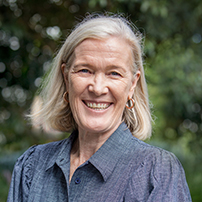We’ve all heard sermons that haven’t spoken to us. No preacher hits it out of the park every Sunday. So, was Jesus’ ‘sermon on the plain’ a bit of an ‘off day’ too?
Honestly, ‘blessed are you who are poor’ seems a shameful thing to say (Luke 6:20). How would that message go down in the slums of Dhaka, Bangladesh? Where is the blessing for Ugandan mothers listening to hungry children cry themselves to sleep? Is there any hope to be had in ‘blessed are you who are hungry now, for you will be filled’ (Luke 6:21)?
In a world that heaps curse upon curse, where is the promise of the kingdom for the poor?
Where is the promise of the kingdom for the poor?
There’s a bit in the sermon for us too. ‘But woe to you who are rich, for you have received your consolation (Luke 6:24). So, no promise of the kingdom, just a statement that says, what we’ve got now is pretty much it. Oh, and if you’re thinking you’re not rich, on a world scale, anyone reading this blog likely is. That’s why we prefer Matthew’s Beatitudes version to Luke’s literal poor. Somehow, we imagine ourselves as, at least, being ‘poor in spirit’ and, because there’s no mention of the rich, it’s not so confronting (Matthew 5:1-11).
But dismissing Jesus’ message here could be to our peril. Responding to the Pharisees, who were lovers of money (Luke 16:14), Jesus told a story about two men, one poor and one rich. The rich man was dressed in the latest fashion and ate every day like a king. Lazarus, a poor man covered in sores, camped out at the rich man’s gate. Hungry, he imagined dining on the discarded leftovers from the rich man’s table. His only comfort were dogs who came and licked his sores.
Luke 16:19-21
Lazarus died and was carried by angels to the lap of Abraham. The rich man died too, but unlike Lazarus, received a proper burial. In Hades, where he was being tormented, he looked up and saw Lazarus with Abraham.
‘Father Abraham,’ he cried out, ‘have mercy on me. Send Lazarus to dip his finger in water to cool my tongue; I’d give anything for a little relief from the agony of these flames.’
‘Child,’ said Abraham. ‘During your lifetime everything was good for you but for Lazarus, it was the complete opposite, everything was evil. It’s all reversed now; he is comforted, and you are in agony. Besides, there is a great chasm so it’s not possible to move between the two.’
‘Then Father, I beg you,’ said the rich man. ‘Send Lazarus to my father’s house. My five brothers are on the same trajectory as me. They need to be warned.’
‘They have Moses and the prophets, let them listen to them,’ replied Abraham.
‘But Father, they’re not listening,’ said the former rich man. ‘But if someone goes to them from the dead, surely they will listen then.’
‘If they’re not listening to Moses and the prophets,’ said Abraham, ‘someone rising from the dead won’t convince them either.’ (Luke 16:19-21—my paraphrase).
The Great Reversal
Most of us, whether we admit to it or not, equate things going well with having God’s blessing. Rarely, however, do we think about the opposite and what that means for the poor. If God is blessing me with every good thing, are the poor then cursed with every bad thing?
Jesus’ story breaks that comfortable illusion.
This story would have sent shock waves through those listening and should stop us in our tracks too. The rich man expected eternity to reflect the life he was used to, so to end up barbecue meat in Hades was an unexpected nightmare. That’s why he wanted to warn his brothers.
Lazarus would have been surprised too. Imagine discovering Jesus’ words of ‘blessed are you who are poor,’ after such a nightmare life, are exactly what the kingdom is all about.
The Importance Of The Gate
The rich man paid no attention to Lazarus starving at his gate, yet in Hades, desperate for a drop of water, he didn’t hesitate to call for Lazarus’ help. He expected the poor to serve him just as they had when he was alive. Most societies operate on the understanding that the poor serve the rich. That’s how the poor survive.
Scripture, and therefore the gospel, turns that on its head. The rich are called to serve the poor. As followers of Jesus, we have a gospel mandate and therefore calling, to live a life where we have less, so others have more (Mark 10:35-45, Matthew 16:25, Luke 18:18-29, Philippians 2:5-8.
Call it simplicity or whatever you like. It’s the opposite of living for prosperity which has no place in the kingdom of God.
The rich man asked for Lazarus to be a ‘messenger of the truth’ to his brothers. ‘Send Lazarus’ he implored. Ironically, Lazarus was the messenger of truth while camped at his gate. It was the opportunity to reverse the fortunes of both, one in this life, the other in the next. One was under the bondage of poverty, the other under the bondage of wealth. Both could have been set free in this life and the next.
When reversal happens in this life, it’s not needed in the next. That’s the ‘your kingdom come here on earth as it is in heaven’ that Jesus taught us to pray and live. Speaking again to a Pharisee, Jesus said, ‘When you give a luncheon or a dinner, do not invite your friends or your brothers or your relatives or rich neighbours, in case they may invite you in return, and you would be repaid. But when you give a banquet, invite the poor, the crippled, the lame, and the blind. And you will be blessed, because they cannot repay you, for you will be repaid at the resurrection of the righteous’ (Luke 14:12-14).
So then. Jesus wasn’t having an ‘off day’ at all. Perhaps if I take his words seriously by walking out to my gate, my neighbourhood, and God’s world, those words ‘blessed are you who are poor’ become the lived reality for many as God brings about a better world.
Now, who is coming to dinner?



 Melissa Lipsett,
Melissa Lipsett,

 Heather Keith,
Heather Keith,